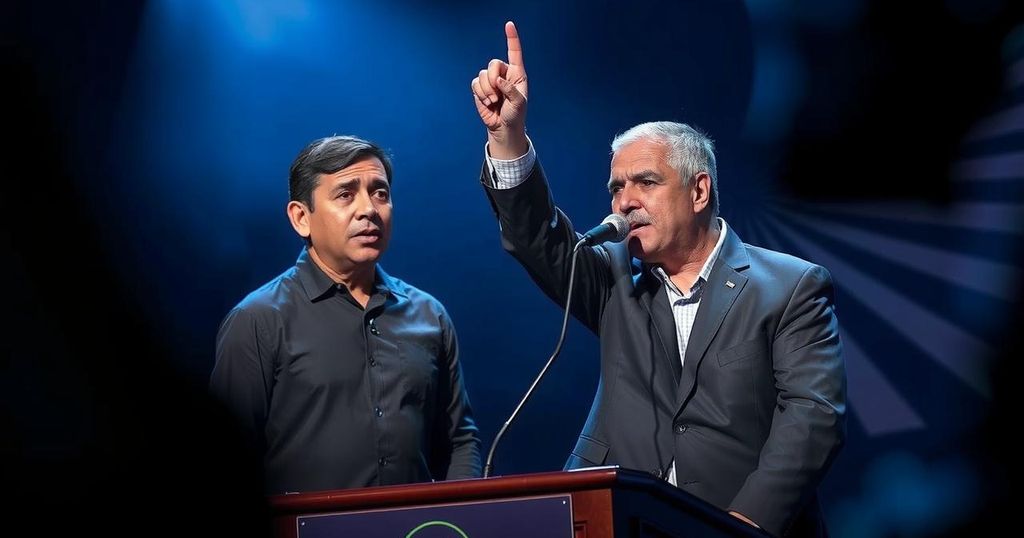Uruguay’s Presidential Runoff: A Close Contest Amid Political Consensus
Uruguay is holding a closely contested presidential runoff between Álvaro Delgado of the National Party and Yamandú Orsi from the Broad Front. The election follows a first round where the Broad Front received 44% of the vote. As concerns about rising crime and economic stability persist, both candidates are focusing on governance that promotes cooperation and moderate reforms.
Uruguayan citizens participated in a presidential runoff election on Sunday, following an indecisive first round. Álvaro Delgado, the candidate for the conservative National Party, is contending with Yamandú Orsi from the Broad Front, a leftist coalition which previously governed for 15 years. The first round saw the Broad Front securing 44% of the vote, while Delgado’s National Party captured 27%. The candidates are vying amidst a backdrop of public concern over rising crime rates and a need for governance that addresses economic challenges without significant ideological upheaval.
Delgado, positioning himself as a continuity candidate loyal to current President Luis Lacalle Pou, is advocating for pro-business policies and enhancing security measures. Conversely, Orsi aims to promote social investment but presents no radical changes. This election is underpinned by a lack of extreme political polarization, allowing for a civil discourse around economic issues and public safety, although many voters remain undecided. This election reflects the Uruguayan political landscape, characterized by negotiation and consensus rather than populism.
The recent presidential election in Uruguay follows a period of stability under the center-right government led by President Luis Lacalle Pou. With the country previously governed by the left-leaning Broad Front, which enacted significant social reforms, the current election highlights the ongoing political competition between liberal social policies and conservative governance. The political atmosphere is complicated by a recent surge in violent crime, prompting candidates to address these concerns directly in their campaigns. As such, both candidates are not only fighting for votes but also attempting to navigate a culturally and economically diverse electorate that desires both security and social progress.
The presidential runoff in Uruguay has emerged as a closely contested battle between Álvaro Delgado and Yamandú Orsi amidst a backdrop of political stability and rising crime concerns. Despite the candidates’ differing approaches, the overall tone of the election remains pragmatic, with both parties aiming for a civil transition of power regardless of the outcome. Voter indecision highlights the complexities of contemporary Uruguayan politics, as citizens navigate their priorities between economic stability, social reform, and security issues.
Original Source: www.cnn.com




Post Comment